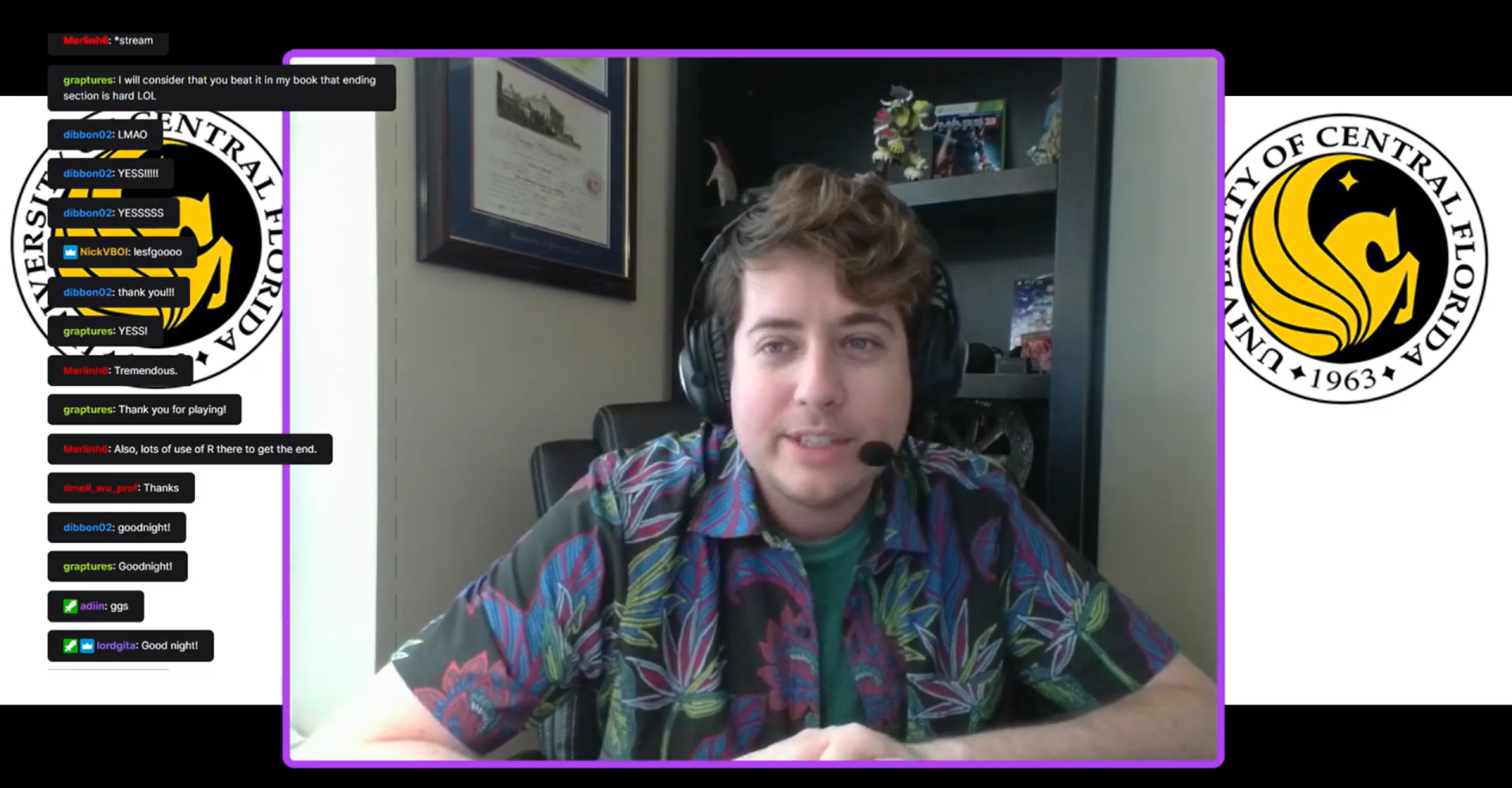
It’s not often that creators get to experience the thrill of seeing people using their products for the first time. For the students in UCF’s AI for Game Programming course however, it’s a unique opportunity they can have thanks to Assistant Professor Johnathan Mell.
Mell, a video game aficionado, started playing the games developed by his undergraduates live on Twitch three years ago. He continued that tradition this past weekend for games his students developed in the Spring 2024 semester.
For hours, he played through a selection of the course’s games, live. The majority of the games were a blind playthrough, having not seen the games before at all.
“I’m seeing big RPG energy here,” he says, describing features of one game as he plays, noting that the developers have included a stamina bar, a durability meter for weapons and a screen to keep track of inventory. “I’m getting Runescape flashbacks, definitely.”
On another game, he praises the team on their use of an opening screen font that complements the game’s western theme. Later, commends them on turning a bug into a feature as the game character bounces on a bed with a trampoline effect.
Mell offers commentary, feedback and addresses comments by the viewers as he plays through each game. He says he can appreciate more aspects of the games when there is an audience engaging with him as he is playing, and likes that he can asks questions of the game creators.
“Reviewing the games live is an incredibly important aspect, because it really ties into the way video games are engaged with today,” Mell says. “Many games are marketed through partnerships with streamers, influencers and content creators, and that’s how a lot of people get into games in the first place. So it’s only natural that this medium is the best way to showcase games.”
Each semester, the students enrolled in the course are tasked with developing a game using the platform of their choosing. Students typically work in teams of four and develop the games as a group. With the exception of a few mandatory features – an AI system, handling of object collision, level design principles, and a demonstration of physics, for example – teams have carte blanche as to what they create.
Two to three weeks into the semester, each group pitches their game to the class, detailing the aspects and features of their proposed creation. The groups then develop their games using feedback from their pitch. Mell estimates that teams spend six to 10 hours outside of class each week working on their games.
Over the course of a single semester, the students develop about 30 games. Each game is reviewed during offline runs by instructors and teaching assistants in multiple sections of the class. The top 15 are chosen to be played and reviewed by Mell live on Twitch.
Playing live is a tradition Mell has kept for all six semesters that he’s been teaching the course, and one that he plans to continue. He also gives out awards for the best games. This year’s Best in Show award winner is a game called “The Apartment,” a 2D adventure about the lives of neighbors in an apartment building stuck in a time loop.
“It opens it up to people across the country in ways an in-person showcase would miss,” he says. “It allows many other folks, including guest lecturers, industry folks and the public at large to see the great work these students do.”